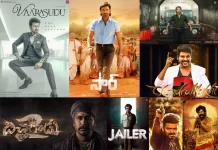The way music is taught changed dramatically in the past decade. Traditional teaching strategies are indispensable, but they should be spiced up with innovative methods that promote engagement and composition. If you are a music teacher looking for fresh ways to inspire your students into becoming the musicians they are destined to be, you will be glad to know they teach a great deal about music here.
The modern classroom offers many excellent resources that adaptable teachers are taking advantage of to create an excellent contemporary learning experience. This article will ist four excellent teaching strategies that are guaranteed to improve music lessons for you and your students. Read on to learn more about what music teachers are doing to make their classes vibrant and inspirational.
Utilize Music Technology
We are witnessing a very tech literate generation that most teachers struggle to keep up with. Students love technology and rightly believe it makes things easier. A great way to sustain their interest and self-motivate them is by using any technology at your disposal. Numerous types of music technology provide a powerful resource for teaching music in a new and engaging way.
A significant disadvantage of traditional music teaching techniques is their underutilization of technology. Do not get tempted to ignore technology in your music classroom because it can be a powerful conduit to learning. A great way to begin is by asking students if they use any music learning apps. This is a quick way to appraise yourself which tools they find helpful. You will then have to use these tools yourself and explore to find out which you prefer. It will surprise you how quickly you will learn to use the tools.
Digital Audio Workspaces (DAW) like SoundTrap and Soundation is the most popular productions and composition tools that music lovers worldwide use. You have a wealth of free resources waiting for you and your students. Popular tools include Pro Tools, Logic and GarageBand. You will also find helpful apps created to help music teachers keep track of individual students’ progress and practice sessions.
Engage Your Students With Music They Relate To.
Some of your students are eager to learn everything you have to offer about music; others may be at a more modest enthusiasm level. Either way, you will have to create or sustain a genuine interest in and passion for music in as many of your students as possible. Since their tastes in music are likely to vary widely, engaging all of them is a simple way to keep your syllabus diverse and inclusive.
You can begin by drawing examples of songs that they all are likely to recognize and discuss their melody, tempo and any other elements that are relevant to your class. You can engage your students by asking them to choose the songs you analyze or learn in class.
Incorporate a Diverse and Inclusive Music Syllabus
After grabbing your students’ attention via music they already relate to, you will need to take them on a journey across most of the musical world. Inclusivity is a daunting endeavor because you will have to create a cohesive syllabus that engages individual interests. You will need to cater to students of all backgrounds and ability levels using different learning styles. Inclusivity is a great way to make your class versatile and dynamic. Catering to different musical genres and instruments will make it easier for you to adapt to the needs of students and create collaboration between them.
Rely on Your Inner Artist
One of the best ways to inspire your students is by staying connected to your inner artists. Your experiences as a musician are a vast collection of unconventional wisdom that could benefit your students greatly. Whether regaling students with tales about your struggles organizing concerts, interviewing for bands, looking for gigs, working with other musicians or dealing with the business side of music, your students will likely want to hear it all.
All your past experiences present an opportunity to pass niche knowledge to your students and capture their interest. Rely on your contacts from the music scene to bring guest speakers to inspire your students and provide a different aspect of the industry. Take an active interest in learning your student’s dreams and engage people who will give them an idea of what that entails. Challenge your students to be resourceful and reach out to various people who can mentor them on their chosen paths.










